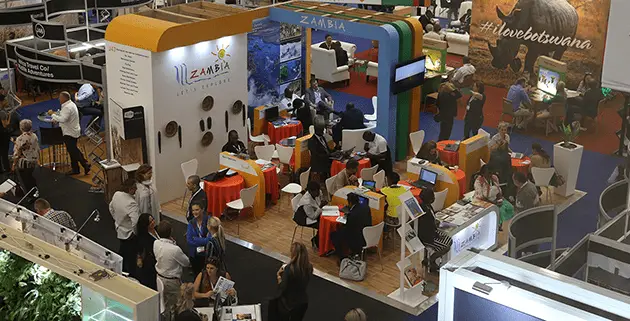UNWTO Call To Action: Driving Transformation in Tourism
Put yourself in the shoes of the 20th Century traveller; just a couple of years ago, the avid explorer would watch interesting programmes on TV or head to the library to research destinations. Then they’d head to a travel agent and browse brochures before making a booking. That would involve a trip to the bank, too, and then still another trip to the mall to get travel supplies and suitable clothing. All that travelling before even leaving home. Now, it’s possible to do all of that and more from your mobile phone or laptop. The world as we know it is changing, with technology disrupting how we explore the global village.
The African experience emerges
Across Africa, countries are coming online at a faster rate than any other continent on the planet, largely because we have lagged in developing the necessary infrastructure, but this is enabling young entrepreneurs to develop innovative travel solutions suitable to our own context. It’s creating jobs that didn’t exist 25 years ago and is at the very heart of a transformative revolution that spans many nations. Travellers and tourism professionals are, quite literally, holding their future in their hands.
The more African countries come online, and visitors can share their travel experiences via social media channels while travelling, the more we’re opening up to the global travel market. It may have been tricky to find out about certain countries previously, with very little being available even in libraries, but now you can follow a hashtag like #ExploreZambia (for example) and get a vivid explorer’s eye view for the land, to whet your appetite for travel.
The theme for the UNWTO’s World Tourism Day for 2018 is ‘Digital Transformation in Tourism’, described by the organisation as “helping to put the opportunities provided to tourism, by technological advances including big data, artificial intelligence and digital platforms, on the map of sustainable development”. The World Tourism Organization (UNWTO) sees digital advances and innovation as part of the solution to the challenge of marrying continued growth with a more sustainable and responsible tourism sector.”
Furthermore, UNWTO Secretary-General Zurab Pololikashvili has stated that harnessing innovation and digital advances provides tourism with opportunities to improve inclusiveness, local community empowerment and efficient resource management, amongst other objectives within the wider sustainable development agenda, and those are critical elements to development of which South Africa is very much aware.
Inclusivity – a call to action
“Our innovative approach to addressing water shortages has proven that we’re capable when it comes to doing just that, with initiatives ranging from desalination projects to awareness campaigns that reinforce our activities. New technologies are breaking down barriers to access in business, such as on-the-go payment options like Yoco and Snapscan, widening opportunities for SMEs and making it easier for visitors to pay,” said Enver Duminy, CEO of Cape Town Tourism while sharing his vision at the UNWTO Summit in Seoul, Korea, in September 2018.
“Another means by which we’re tackling transformation is within our neighbourhoods, driving inclusivity by showcasing micro-tourism businesses so that the whole world can see what life is like in neighbourhoods such as Langa, Gugulethu and Khayelitsha, for example. This enables us to work with communities to ensure that the benefits of tourism don’t just dwell with larger tourism enterprises, but that SMEs can share in the economic impact.
“Our journey to sustainability in tourism cannot be steered by one organisation or government department, it must be a factor that’s central to every business strategy. With increased access to remarkable technological solutions, we have no excuse for ignoring this call to action – the more energy we put into expanding our technological transformation, the more we’ll see entire communities benefiting, from increased economic rewards to job and entrepreneurial opportunities,” concludes Duminy





